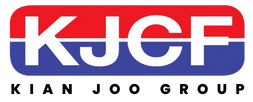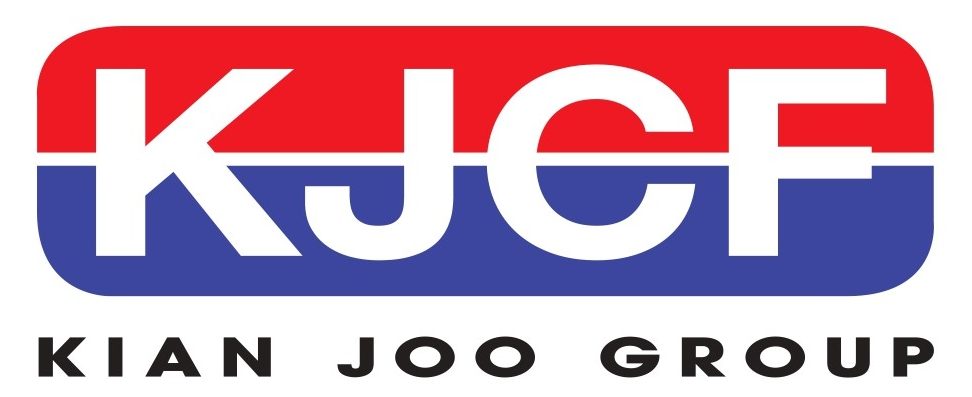

Common Acts of Misconduct
Appendix 1 : Common Acts of Misconduct
- Theft/Pilferage/Misappropriation or attempt of the same of the Company’s money or property or other employee’s money or property within the Company’s premises.
- Fraud, dishonesty, falsification or attempt of the same in connection with the Company’s business, money or property.
- Cheating the Company.
- Fighting with or assaulting, abusing or being violent towards another employee or authorized visitor on the Company’s premise or threatening the same.
- Prosecuted or charged with criminal offense.
- Soliciting or accepting bribes or any illegal gratification.
- Participation in unauthorized financial transactions within the Company’s premises.
- Participation in illegal strikes.
- Instigating industrial action among employees against the Company.
- Picketing in the Company’s premise except where permissible under the law, agreement or award.
- Inciting other employees to participate in illegal strikes in contravention of the provisions of any law or rule having the force of law.
- Wilful insubordination or disobedience whether alone or in combination with others to any lawful and reasonable order of a superior.
- Conflict of interest.
- Breach of fiduciary relationship.
- Spreading malicious rumours about the Company.
- Gambling whether involving money or otherwise, in the Company premises.
- Gross negligence and neglect of duty.
- Interfering with the record of his attendance or of any other employee or falsification, defacement or destruction of any record of the Company.
- Sleeping while on duty.
- Possession of illegal weapon or lethal weapon on the Company’s premises.
- Riotous, disorderly or indecent behaviour on the Company’s premises.
- Smoking in prohibited / restricted areas.
- Illegal substance or drug abuse.
- Disclosing confidential information.
- Driving or unauthorized use of the Company’s vehicle without prior authorization.
- All forms of harassment including but not confined to unwelcome verbal or physical advances and sexually, racially or otherwise derogatory or discriminatory statements or remarks.
- Habitual late coming or late attendance.
- Habitual negligence.
- Commission of any subversive act to the discipline of the Company or general behaviour.
- Commission of any private act that brings disrepute, embarrassment or affects the legitimate interest of the Company or ruins the image of the Company.
- Company habitual breach of any order or any law applicable to the establishment of rules made there under.
- Withholding overtime at a critical time to bring pressure on the management.
- Making material misstatement in job application, loan application or declaration.
- Unauthorized use of time cards.
- Possession, sale or distribution of unsuitable, indecent or pornographic materials.
- Committing an immoral act within the Company’s premises.
- Failure to report serious infectious or contagious illness or disease to the Company’s medical Officer or HRD.
- Forging or defacing medical certificates or other official documents to defraud the Company.
- Conduct which is likely to cause injury or endanger the life or safety of another person within Company’s premises.
- Trespassing or forcible occupation of the Company’s premises or prohibited areas.
- Bringing company to illegally challenge dismissal.
- Bypassing the proper channel of communication.
- Refusal to accept any communication served either in accordance with the Code of Conduct or in instigating the same.
- Misrepresentation of the Company to others.
- Participation in illegal gatherings or activities in the Company’s premises or abetting, inciting or instigating the same.
- Serious pecuniary indebtedness affecting the public image of the Company.
- Making public statements against the interest of the Company.
- Publishing or writing of books against the interest of the Company.
- Leaving work place during working hours without permission of the immediate supervisor or overstaying sanctioned leave without sufficient grounds or proper or satisfactory explanation without informing or attempting his employer of the excuse or reason for such absence.
- Absenteeism.
- Quarrelling or fighting or committing a nuisance at the work place.
- Misdemeanours.
- Carelessness or wilfully causing damage or loss to the Company’s property or goods.
- Deliberate interference with or damage and contamination of factory processes, material or equipment.
- Posting, altering, removing, defacing or destroying the Company’s notices or any material on bulletin boards or the Company’s property without the permission of the management.
- Failure to wear a uniform at work place as per the Company’s policy.
- Failure to furnish information which is within the scope of his employment and which relates to the mutual interest of the Company and the employee.
- Malingering and feigning illness.
- Loitering during working hours.
- Failure to follow safety procedures or tampering with safety devices to the detriment of the Company or its employees.
- Infringement of safety regulations.
- Unnecessary wastage of documents and materials.
- Abuse or unauthorized use of the Company’s property, utilities, equipment or facilities.
- Habitual or substantial negligence in the care of tools, equipment and apparatus of the Company.
- Wilful failure to report at once to his superior any defect which an employee may notice in any equipment connected with his work.
- Wilful in not reporting any defect or occurrence which an employee may notice or which might endanger himself or any other person or which might result in damage to the Company or any person within the Company.
- Failure to keep the work place clean and tidy.
- Obstructing, inciting or wilfully slowing down other employees from work.
- Blackness in performance.
- Disclosing commercial or manufacturing secrets, calculations or designs.
- Acting in violation with competition laws, including agreeing with competitors on prices or any other terms and conditions to customers, allocation territories or customers, rigging bids.
- Ceasing work without permission before the proper finishing time.
- Spitting within the Company premises.
- Playing computer games at the company premises during or installing computer game(s) into company’s computer.
- Interfering with another person’s work during working or non-working hours.
- Writing frivolous or offensive notes/ memos/ letters to superior.
- Contaminate drinking fountain water in the premises.
- Selling or advertising non-company products in circumstances prejudicial to discipline.
- Bringing friends or visitors without permission to tour the factory.
- Refusal to submit to search when required to do so by the company authorised representative.
- Installing pirated computer software or unlicensed computer software inti company’s computer.
- Engaging in private work or trade within the Company or outside the Company which is directly and indirectly in conjunction with the business of the Company.
- Any other offences that are deemed major.
The above examples of misconduct are not exhaustive as the Company reserves the right to determine what constitute acts of misconduct that warrant disciplinary action and will update the list from time to time.
Common Acts of Misconduct
Appendix 1 : Common Acts of Misconduct
- Theft/Pilferage/Misappropriation or attempt of the same of the Company’s money or property or other employee’s money or property within the Company’s premises.
- Fraud, dishonesty, falsification or attempt of the same in connection with the Company’s business, money or property.
- Cheating the Company.
- Fighting with or assaulting, abusing or being violent towards another employee or authorized visitor on the Company’s premise or threatening the same.
- Prosecuted or charged with criminal offense.
- Soliciting or accepting bribes or any illegal gratification.
- Participation in unauthorized financial transactions within the Company’s premises.
- Participation in illegal strikes.
- Instigating industrial action among employees against the Company.
- Picketing in the Company’s premise except where permissible under the law, agreement or award.
- Inciting other employees to participate in illegal strikes in contravention of the provisions of any law or rule having the force of law.
- Wilful insubordination or disobedience whether alone or in combination with others to any lawful and reasonable order of a superior.
- Conflict of interest.
- Breach of fiduciary relationship.
- Spreading malicious rumours about the Company.
- Gambling whether involving money or otherwise, in the Company premises.
- Gross negligence and neglect of duty.
- Interfering with the record of his attendance or of any other employee or falsification, defacement or destruction of any record of the Company.
- Sleeping while on duty.
- Possession of illegal weapon or lethal weapon on the Company’s premises.
- Riotous, disorderly or indecent behaviour on the Company’s premises.
- Smoking in prohibited / restricted areas.
- Illegal substance or drug abuse.
- Disclosing confidential information.
- Driving or unauthorized use of the Company’s vehicle without prior authorization.
- All forms of harassment including but not confined to unwelcome verbal or physical advances and sexually, racially or otherwise derogatory or discriminatory statements or remarks.
- Habitual late coming or late attendance.
- Habitual negligence.
- Commission of any subversive act to the discipline of the Company or general behaviour.
- Commission of any private act that brings disrepute, embarrassment or affects the legitimate interest of the Company or ruins the image of the Company.
- Company habitual breach of any order or any law applicable to the establishment of rules made there under.
- Withholding overtime at a critical time to bring pressure on the management.
- Making material misstatement in job application, loan application or declaration.
- Unauthorized use of time cards.
- Possession, sale or distribution of unsuitable, indecent or pornographic materials.
- Committing an immoral act within the Company’s premises.
- Failure to report serious infectious or contagious illness or disease to the Company’s medical Officer or HRD.
- Forging or defacing medical certificates or other official documents to defraud the Company.
- Conduct which is likely to cause injury or endanger the life or safety of another person within Company’s premises.
- Trespassing or forcible occupation of the Company’s premises or prohibited areas.
- Bringing company to illegally challenge dismissal.
- Bypassing the proper channel of communication.
- Refusal to accept any communication served either in accordance with the Code of Conduct or in instigating the same.
- Misrepresentation of the Company to others.
- Participation in illegal gatherings or activities in the Company’s premises or abetting, inciting or instigating the same.
- Serious pecuniary indebtedness affecting the public image of the Company.
- Making public statements against the interest of the Company.
- Publishing or writing of books against the interest of the Company.
- Leaving work place during working hours without permission of the immediate supervisor or overstaying sanctioned leave without sufficient grounds or proper or satisfactory explanation without informing or attempting his employer of the excuse or reason for such absence.
- Absenteeism.
- Quarrelling or fighting or committing a nuisance at the work place.
- Misdemeanours.
- Carelessness or wilfully causing damage or loss to the Company’s property or goods.
- Deliberate interference with or damage and contamination of factory processes, material or equipment.
- Posting, altering, removing, defacing or destroying the Company’s notices or any material on bulletin boards or the Company’s property without the permission of the management.
- Failure to wear a uniform at work place as per the Company’s policy.
- Failure to furnish information which is within the scope of his employment and which relates to the mutual interest of the Company and the employee.
- Malingering and feigning illness.
- Loitering during working hours.
- Failure to follow safety procedures or tampering with safety devices to the detriment of the Company or its employees.
- Infringement of safety regulations.
- Unnecessary wastage of documents and materials.
- Abuse or unauthorized use of the Company’s property, utilities, equipment or facilities.
- Habitual or substantial negligence in the care of tools, equipment and apparatus of the Company.
- Wilful failure to report at once to his superior any defect which an employee may notice in any equipment connected with his work.
- Wilful in not reporting any defect or occurrence which an employee may notice or which might endanger himself or any other person or which might result in damage to the Company or any person within the Company.
- Failure to keep the work place clean and tidy.
- Obstructing, inciting or wilfully slowing down other employees from work.
- Blackness in performance.
- Disclosing commercial or manufacturing secrets, calculations or designs.
- Acting in violation with competition laws, including agreeing with competitors on prices or any other terms and conditions to customers, allocation territories or customers, rigging bids.
- Ceasing work without permission before the proper finishing time.
- Spitting within the Company premises.
- Playing computer games at the company premises during or installing computer game(s) into company’s computer.
- Interfering with another person’s work during working or non-working hours.
- Writing frivolous or offensive notes/ memos/ letters to superior.
- Contaminate drinking fountain water in the premises.
- Selling or advertising non-company products in circumstances prejudicial to discipline.
- Bringing friends or visitors without permission to tour the factory.
- Refusal to submit to search when required to do so by the company authorised representative.
- Installing pirated computer software or unlicensed computer software inti company’s computer.
- Engaging in private work or trade within the Company or outside the Company which is directly and indirectly in conjunction with the business of the Company.
- Any other offences that are deemed major.
The above examples of misconduct are not exhaustive as the Company reserves the right to determine what constitute acts of misconduct that warrant disciplinary action and will update the list from time to time.

